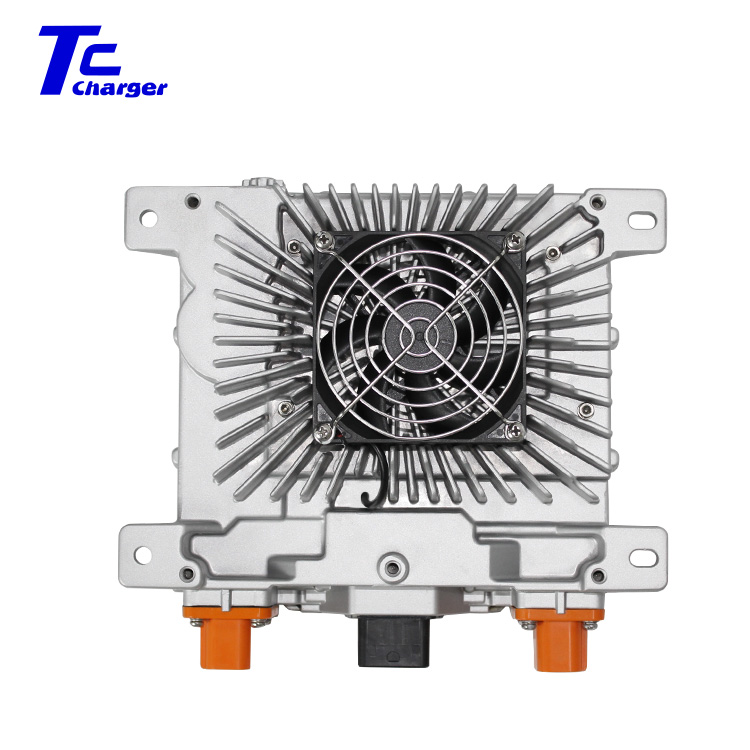The Unsung Hero of Electric Vehicles: On-Board Chargers
Jul 08,2024 | TCcharger
 Electric vehicles (EVs) are transforming the way we think about transportation, offering a cleaner, more sustainable alternative to traditional gasoline-powered cars. While much attention is given to battery technology and range, the on-board charger (OBC) is a critical component that deserves its share of the spotlight. In this blog, we'll explore what an on-board charger is, how it functions, and why it is indispensable for EVs.
Electric vehicles (EVs) are transforming the way we think about transportation, offering a cleaner, more sustainable alternative to traditional gasoline-powered cars. While much attention is given to battery technology and range, the on-board charger (OBC) is a critical component that deserves its share of the spotlight. In this blog, we'll explore what an on-board charger is, how it functions, and why it is indispensable for EVs.
What is an On-Board Charger?
An on-board charger is an integral part of an electric vehicle that converts the alternating current (AC) from the power grid into direct current (DC) that can be stored in the vehicle’s battery. This conversion is essential because EV batteries can only store DC power, whereas most charging stations supply AC power.
How Does an On-Board Charger Work?
When you plug your EV into a charging station, AC power flows from the grid into the vehicle. The on-board charger then converts this AC power into DC power, which is then stored in the battery. The efficiency and speed of this conversion process are crucial as they directly impact how quickly your vehicle can be charged.
Types of On-Board Chargers
-
Single-Phase Chargers: Commonly used in residential settings, these chargers are slower but sufficient for overnight charging.
-
Three-Phase Chargers: Found in commercial or industrial settings, these chargers are more powerful and can charge an EV much faster, making them ideal for quick charging sessions.
Why Are On-Board Chargers Important?
-
Convenience: With an on-board charger, you can charge your EV from any standard electrical outlet, making it highly convenient for daily use.
-
Efficiency: Modern on-board chargers are designed to be highly efficient, minimizing energy loss during the conversion process, which saves electricity and reduces charging times.
-
Versatility: On-board chargers provide flexibility in charging options, whether at home, work, or on the road.
-
Cost-Effectiveness: By utilizing existing electrical infrastructure, on-board chargers help reduce the overall cost of EV ownership, eliminating the need for specialized charging equipment.
The Future of On-Board Chargers
As technology advances, on-board chargers are expected to become even more efficient and powerful. Innovations such as bidirectional charging, where the vehicle can also supply power back to the grid, are on the horizon. This could turn EVs into mobile energy storage units, providing additional benefits to both owners and the broader energy grid.
Conclusion
While on-board chargers may not garner as much attention as other components of electric vehicles, they are indispensable for the efficient and convenient operation of EVs. As we move towards a more sustainable future, understanding the role and benefits of on-board chargers will become increasingly important.



